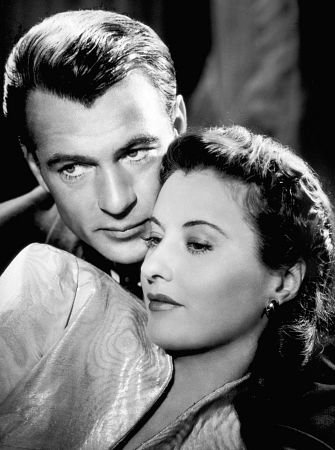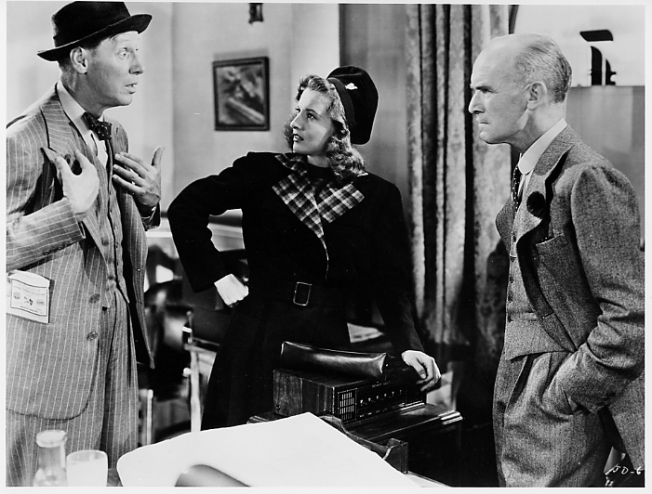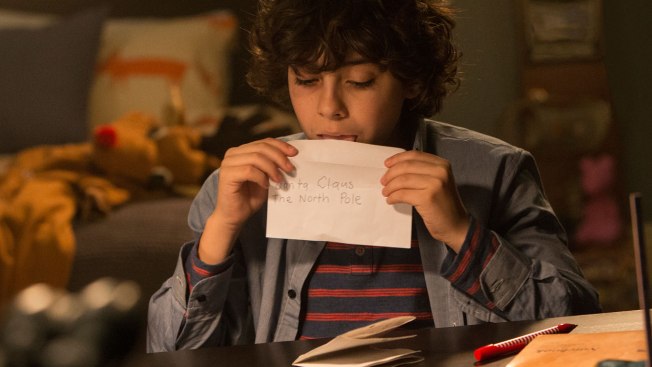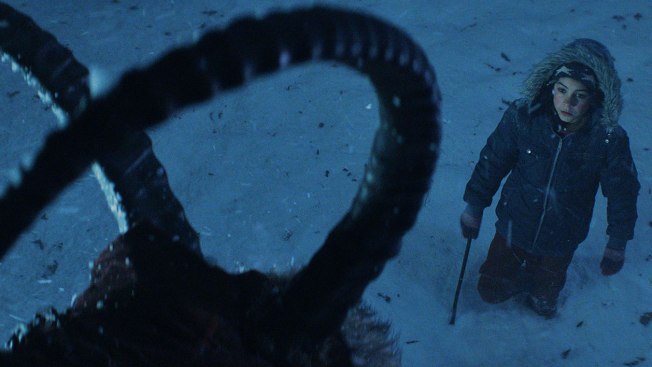
I’m not a film critic. I don’t watch movies as a job, I don’t try to critique meaning in a film and write about it. I don’t want to have that title, or pressure. I love movies and therefore I have an opinion on them. But beyond that, I wouldn’t consider myself a critic. Maybe a critic of my own writing of a film. Other than that though, I’m not a film critic. I don’t know if I can say that enough. However, I am about to share another post about a film. Though it’s been almost seventy-five years since it’s release so I guess that makes it okay.
I’ve said that Frank Capra’s filmography is like the winning numbers on a lottery ticket. Because so many of the movies he’s made have turned into solid gold. From Mr Smith Goes to Washington (1939) to Arsenic and Old Lace (1944), to It’s a Wonderful Life (1946), Capra captures the cataclysmic characteristics of cinematic masterpieces that catapult his films into classic cinema history. (Cliche? Cheesy?) Many of Capra’s films are classic and timeless. The same is true of his relatively unknown film, Meet John Doe, which was released in 1941. (watch the trailer here). And though it was nominated for an Oscar in 1942 for writing (original story), today it is all but overshadowed by Capra’s 1946 Christmas film, It’s a Wonderful Life. However, the fact that it was Capra’s first independently produced film might be the reason it so widely unknown. At least unknown to me until I stumbled upon it during my “watch only old movies” phase. Nevertheless, when I did stumble upon this hidden masterpiece, I found a film that was almost my complete self, in film form. For instance, if I was a film, this is the film I would be; not perfect by any means, but dripping with passion, patriotism, and just a touch of sarcastic humor and romance to make things light.
Meet John Doe is like an old friend. I want you to meet her but I want to preface her with all the reasons why she’s an old friend, so that you too can understand why I love her. There’s just something about this film that hits me in my sweet spot. There’s something about this film that feels important to our current societal situation, especially these days. It feels almost as if this movie was sent as a message to us from the past—like Capra was trying to show us what happens when we believe in ourselves, when we trust each other, when we love each other, and trying to show us just how important and powerful We the People can actually be.

The story begins at a local newspaper office “The Bulletin” where the words “free press” are being chiseled away from their sign—an omen of things to come? Then we move inside the building, where one by one people are being “let go,” from their jobs. One of those sorry souls is Ann Mitchell (Barbara Stanwyck). She tries, without success, to plead with the Managing Editor, Henry (James Gleason) for her job. After offering to take lower pay, Henry tells her that it isn’t about the money, “What we need is fireworks.” As Ann leaves, she is told to turn in her last column before she can get paid. Angry about being fired and confident that she can give Henry and the paper what they want, Ann returns to her office and cooks up a story about a man named John Doe who plans to commit suicide on Christmas Eve by jumping off the City Hall roof as a protest to the state of civilization; disgusted with all of the indecency and corruption in the world. Immediately, people start talking, and Henry and the newspaper get what they want; fireworks.

They hire a man to play John Doe (Gary Cooper) and the John Doe symbol starts a grassroots movement that encourages people to get to know their neighbors and help them in anyway they can. After a rousing speech on the radio, John Doe clubs open up all over the nation and people begin to believe in each other again. They are helping each other again. Pretty soon they don’t need government assistance anymore.
It’s a beautiful, beautiful thing. That to me is what the Christmas spirit means. Not just serving someone just because. Or relying on some middleman who is forcing you to serve. Giving and receiving based on need and sacrifice and love. Being there for one another when they need it. That’s why this movie is a Christmas film. Because it perpetuates the Christmas spirit idea of true charity. Charity isn’t just giving, it’s love.
That’s what Meet John Doe is all about. That’s the message that John Doe shares with the world on the radio that night. A message of love thy neighbor.
“We can’t win the old ball game unless we have team work. And that’s where every John Doe comes in. It’s up to him to get together with his teammate. And your teammate my friend, is the guy next door to ya. Your neighbor, he’s a terribly important guy, that guy next door. You’re gonna need him and he’s gonna need you. So look him up. If he’s sick, call on him. If he’s hungry, feed him. If he’s out of a job, find him one. To most of you, your neighbor is a stranger, a guy with a barkin’ dog and a high fence around him. Now you can’t be a stranger to any guy that’s on your own team. So tear down the fence that separates ya. Tear down the fence and you tear down a lot of hates and prejudices. Tear down all the fences in the country and you’ll really have teamwork. I know a lot of you are saying to yourselves ‘he’s asking for a miracle to happen. He’s expecting people to change all of a sudden.’ Well you’re wrong, it’s no miracle, it’s no miracle because I see it happen once every year and so do you—at Christmas time. There’s something swell about the spirit of Christmas. To see what it does to people. All kinds of people. Now, why can’t that spirit, that same, warm Christmas spirit last the whole year round? Gosh, if it ever did, if each and every John Doe would make that spirit last 365 days out of the year we’d develop such a strength, we’d create such a tidal wave of goodwill that no human force could stand against it. Yes sir, my friends, the meek can only inherit the earth when the John Doe’s start loving their neighbors. You better start right now. Don’t wait ’till the game is called on a count of darkness. Wake up John Doe, you’re the hope of the world.”
This is what we need in our society right now, desperately. We need to take care of each other, we need to help each other, and not because the government is asking us to. We need to do it because it’s right. We need to do it because it’s what Christmas is all about. We need to do it because that’s what life is all about.

Some people might say that it isn’t possible. That people aren’t good enough, or won’t do their fair share without a nudge (or fine) from somewhere else. Some people might say that we can’t do it, or we can’t succeed at something like this because it’s just too big. Some might call me a dreamer, or naive. But I believe it’s possible. As John Doe says; “A free people can beat the world at anything. From war to tiddlywinks, if we all pull in the same direction. I know a lot of you are saying ‘what can I do? I’m just a little punk, I don’t count.’ Well you’re dead wrong, the little punks have always counted because in the long run the character of a country is the sum total of the character of its little punks.” If we all pull in the same direction, we can beat anything. We can beat anything.
Right now we are facing so many “anythings,” from ISIS to hate and prejudices. From fear and worry to just being plain exhausted—the whisperings are predicting another world war. But that’s why I feel like we need this movie now more than ever. Because we need each other now more than ever. We can beat anything as long as we pull in the same direction, instead of pulling apart. We might be just the “little punks” but the character of a country is the sum total of the character of its little punks.
Near the middle of the film, Henry, the Managing Editor of “The Bulletin,” sits down with John and shares with him the passion he has for this country and the men who helped build it. And what he calls them, gives me chills every time. “I’m a sucker for this country,” he starts, “I’m a sucker for the star-spangled banner and I’m a sucker for this country. I like what we got here. I like it. A guy can say what he wants, and do what he wants without having a bayonet shoved through his belly. And that’s alright, in’t? We don’t want anybody coming around changing it, do we? No sir. And when they do, I get mad, I get boiling mad—and right now John I’m sizzling. I get mad for a lot of other guys besides myself. I get mad for a guy named Washington and a guy named Jefferson and Lincoln. Lighthouses, John, lighthouses in a foggy world.” I believe this country, and these men made it possible so that we can achieve this ideal. I believe that we can love each other so much that we take care of each other, we help each other—without getting a fine, or a tax. We do it because we love.
That’s why Meet John Doe is a Christmas film. Not just because it happens at Christmas time, or because it has references to Christmas. It is a Christmas film because it stands for everything Christmas should stand for; the brotherhood of man, love thy neighbor, courage, faith, love, and Christ. One of the last lines of the movie is; “You don’t have to die to keep the John Doe idea alive, someone already died for that once. The first John Doe, and he’s kept that idea alive for nearly 2000 years. It was he who kept it alive in them and he’ll go on keeping it alive forever and always. For every John Doe movement these men kill, a new one will be born. That’s why those bells are ringing, John, they’re calling to us. Not to give up, but to keep on fighting, to keep on pitching. Oh, don’t you see darling! This is no time to give up.” We little punks can also be John Doe. We can help our neighbor, we can love our neighbor. We too can be lighthouses in a foggy world, if we all just pull in the same direction.
Here is a clip of the conversation between John Doe and Henry. Gives me chills. (Watch until the 4:00 mark).


 This is why we need Christmas and this movie. Because we have, like in the movie, forgotten the meaning of Christmas. (I can’t seem to say that without sounding like a cheesy Hallmark movie). But we have, we have forgotten why we celebrate.
This is why we need Christmas and this movie. Because we have, like in the movie, forgotten the meaning of Christmas. (I can’t seem to say that without sounding like a cheesy Hallmark movie). But we have, we have forgotten why we celebrate.